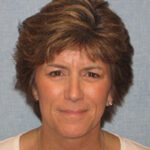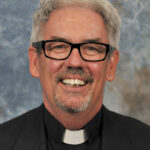U.S. senators and representatives left unfinished business on Capitol Hill before heading home for the August recess. Now it’s time for those of us who are able to visit their local offices to share our ideas about crucial legislative priorities that must be addressed when Congress reconvenes in September.
So, which issues might we consider? In anticipation of the August recess, the Diocese of Davenport’s Social Action Office drew up a list based on concerns raised by the U.S. Conference of Catholic Bishops. With assistance from the Davenport Deanery’s Social Action Committee, that list was honed to five overarching topics: the 2018 federal budget, health care, poverty-focused foreign aid, the DREAM Act and international assistance to combat climate change.
These topics impact each of us in our commitment as followers of Christ. Here are key points the bishops have raised concerning each of the aforementioned topics:
2018 Federal Budget. Budget decisions should be “guided by moral criteria that protect human life and dignity, give central importance to the ‘least of these’ (Matthew 25), and promote the welfare of workers and families who struggle to live in dignity.” The bishops call for “shared sacrifice, including raising adequate revenues, eliminating unnecessary military and other spending, and addressing fairly the long-term costs of health insurance and retirement programs.” As proposed, the 2018 budget sharply increases defense and immigration enforcement spending, at the expense of domestic and international programs that assist the most vulnerable, including our own children, parents and neighbors.
Health care. Reform of the healthcare system is still necessary, despite the U.S. Senate’s decision to vote against repealing and replacing the Affordable Care Act. Our healthcare system requires: protection of the Medicaid program from changes that would harm millions of struggling Americans; safety net protections for the poor, immigrants and others on society’s margins; preventing the collapse of insurance markets and loss of genuine affordability for those with limited means; full Hyde Amendment provisions and conscience protections.
Poverty-focused foreign aid. It isn’t possible or realistic to balance the Federal Budget by cutting the 1 percent that is earmarked for international assistance, the bishops say. As they point out, “Longer-term investments in education, agricultural sustainability, good governance, and strong health systems can reduce the need for costlier humanitarian interventions.”
DREAM Act of 2017. This bipartisan bill, introduced in the U.S. Senate, aims to protect immigrant youths who entered the U.S. as children and know it as their only home. The bishops’ Justice for Immigrants website states that qualifying immigrant youths would receive ‘“conditional permanent resident status’ and a path to full, lawful permanent residency and eventual citizenship.”
Among those protected by the bill are an estimated 780,000 individuals who received temporary relief from deportation and employment eligibility through the Department of Homeland Security’s Deferred Action for Children Arrivals (DACA) program. The bishops say: “The young people S.1615 seeks to protect are contributors to our economy, veterans of our military, academic standouts in our universities, and leaders in our parishes and communities.”
Climate change protections. The U.S. bishops, along with Pope Francis, believe that the “Paris agreement is an important international mechanism to promote environmental stewardship and encourage climate change mitigation.” Withdrawing from the international agreement will have far-ranging effects in the developing world. Climate change contributes to longer droughts and erratic rainfall, making it difficult for farmers to grow the food they need to survive. Climate change also contributes to stronger storms, making it more difficult for people to rebuild in the wake of devastating typhoons and cyclones, for example.
Read more about these issues by visiting the U.S. Conference of Catholic Bishops’ website (www.usccb.org) and clicking on the topic of interest. After you’ve contemplated the issues, make a call to arrange a visit to the regional offices of Senators Charles Grassley and Joni Ernst and the U.S. Representative who serves your district. It’s easiest to visit their websites to determine office location and phone numbers:
Sen. Grassley: www.grassley.senate.gov
Sen. Ernst: www.ernst.senate.gov
Rep. David Loebsack: https://loebsack.house.gov
Rep. Rod Blum: https://blum.house.gov
Our voices matter; our faith compels us to speak.
Barb Arland-Fye, Editor
arland-fye@davenportdiocese.org











